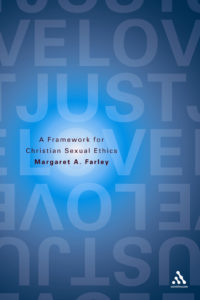We all want to do work that matters. But, as often as not, you won’t find that kind of work in the want ads. It’s rarely work that somebody else gives you to do. As often as not, you need to give yourself the kind of work that will change the world.
Early on in my forthcoming book WorkLifeReward: Following Your Values to Fulfilling Work is the line:
If you want the world to be a better place, you need to help it become that better place.
The main way to do so, of course, is through the work you do. So if you don’t think the work you’re doing—that is, your selling whatever it is that you’re selling today—is making the world into the kind of better place you want it to be, maybe it’s time to think about working at something that will make that kind of difference.
These posts are about encouraging you to think differently about your work. They aim to raise what I call “value awareness,” so you have a clearer view of the color and texture of the better world you’d like to encourage with your efforts. Sometimes they aim to help you become the most effective spokesperson you can be while striving to achieve your goals. And sometimes the discussion here is about ways to make the productive work you want to do easier.
This post is about one of those booster rockets. Something has gotten a lot easier.

Creating a business model for a better world, where you and your co-conspirators are doing work that matters, takes energy, creativity, vision, tenacity, luck. And it takes money that either you provide, or that people investing in your vision of a better world put in your hands.
In the good old days the money came almost exclusively from your own bank account or from friends and family. (It was the era when those who already had money were usually the ones making more of it.) On top of that, only a tiny percentage of new ideas—whether promising to change the world or not—managed to find venture capital. So if you or a rich uncle weren’t providing the cash, even your brilliance, best intentions and limitless energy were often not enough to overcome the funding constraints all new companies that produce work need in order to survive.
But there’s some good news. It’s a brand new day!
Today, crowdfunding websites give you the ability to make a direct appeal to individuals or groups who may be interested in supporting what you’re doing—because your kind of work is work that matters to them too.
You tell your story. You identify your goal. The crowd decides whether to invest in it. Usually harvested in small dollar amounts, it is hundreds, even thousands of small investments funneled through the crowdfunding site that can put the financial fuel in a new company’s tank.
As an entrepreneur, you promise to give your investors a tangible return on their investment. It could be a letter from a grateful child your company has helped, a picture of the tree planted “because you invested,” or, if you are producing a brave new product or service, periodic updates on solutions to problems no one had gotten around to tackling before.
You get the idea.
For providing the conduit between you and your new investors, crowdfunding websites like MicroVentures, peerbackers, and IndieGoGo are generally paid a small percentage of what you collect—sometimes as little as 5%, when you hit your fundraising target.

What’s news this week (according to the Wall Street Journal) is that crowdfunding has its first “poster child.”
The Cinderella story is about how a little company called Pebble Technology developed a “smart” wristwatch that can display apps and connect to your smart phone to notify you about incoming tweets and Facebook updates. But 26-year old Eric Migicovsky was almost out of money, living and working with his only employee in a rented condo, and ready to call it quits.
He took his case for financing the manufacture of his smart watch to crowdfunding site Kickstarter, looking for $100,000. The ROI: everyone investing $115 would get one of his watches.
In its first 28 hours on Kickstarter, Pebble raised more than a million dollars. By mid-May, it had taken in a total of $10.27 million from 68,929 people! Now Eric’s problems involve things like working with a manufacturing facility in China to produce all those watches. But it also looks a lot like his work dream has become a reality.
Everybody needs to make a living.
What sometimes seems like the impossibility of getting both a paycheck and fulfillment from your work makes many of us reluctant to leave our paychecks for work that gives us the opportunity to make a living and to truly live.
Crowdfunding is reducing that risk.


